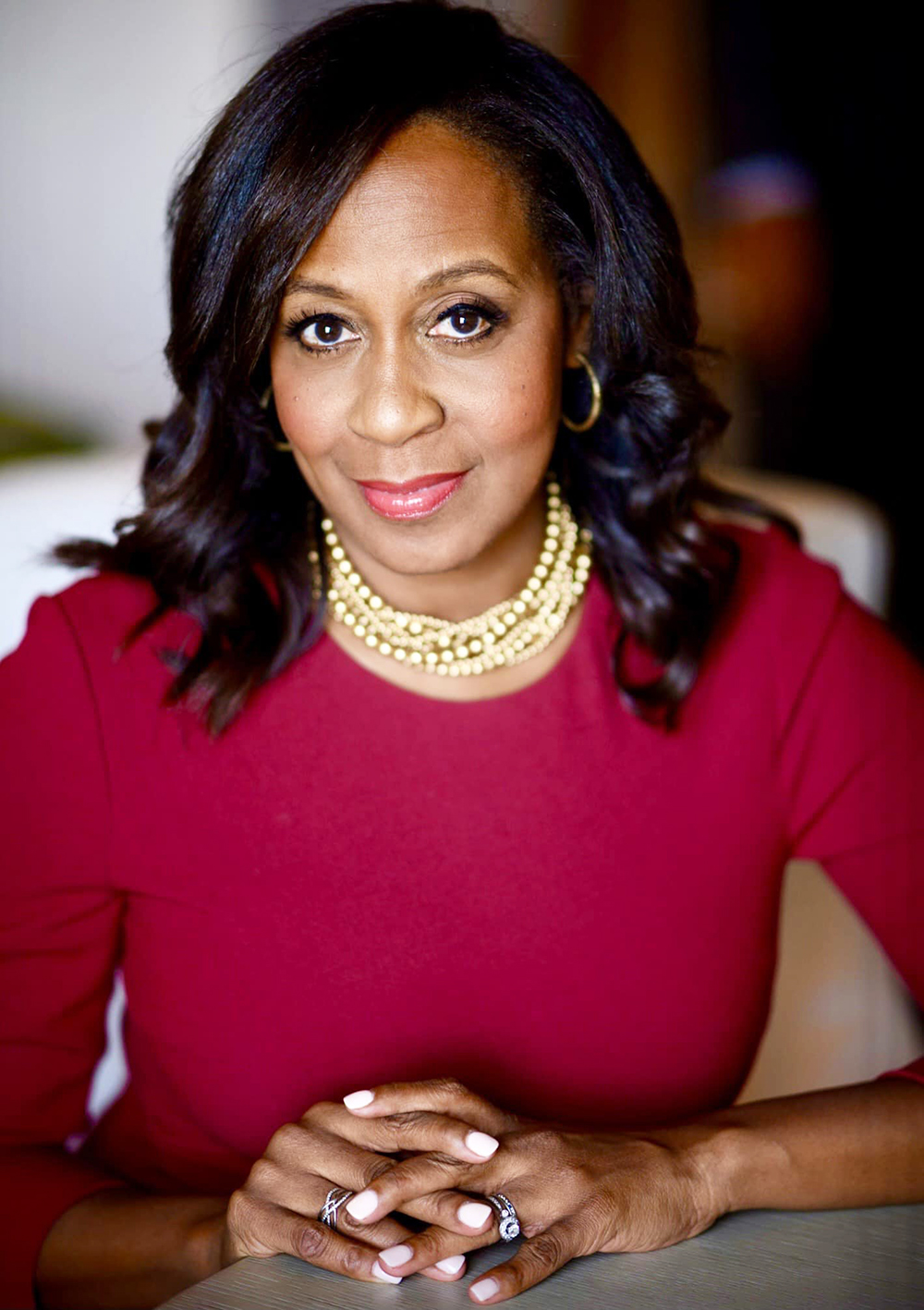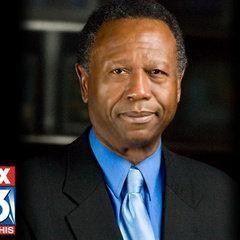As Democratic presidential candidate John Edwards, in Memphis on Monday night for a stop on his “Road to One America” tour, prepared to make his remarks at the MIFA Thrift Store on Vance, mayoral candidate Herman Morris, smiling and pressing the flesh, was working his way through the largely white and youngish crowd of some 300 — most presumably registered to vote in this year’s Memphis city election.
Morris, accompanied by his wife Brenda, couldn’t have seemed more carefree, and when someone said to him, “You must be the happiest man in Memphis right now,” Morris grinned. “Maybe the second happiest,” he corrected. “I’d have to see what A C looks like!”
Morris’ campaign had not exactly turned into duck soup as a result of Shelby County mayor A C Wharton‘s decision, revealed earlier Monday, not to seek the Memphis mayoralty. But Wharton’s abrupt rejection of a blue-ribbon “Draft A C” committee’s appeals had certainly kept Morris, and rival candidate Carol Chumney, for that matter, out of the dead-duck category.
And, as Morris’ quip indicated, it may also have relieved reluctant warrior Wharton of anxieties which, several reports had it, were abundant. Some of them concerned the prospect of a brutal, mauling mano-a-mano with his old friend and ally, Mayor Willie Herenton, an ex-pugilist never slow to throw campaign haymakers. Others had to do with intra-family matters.
And, finally, Horatio at the Gate was not exactly the right game for the laid-back county mayor — whose dapper, reassuring nature was one of his main attractions for those, including many influential members of the city’s business community, who had beseeched him to run against a once-popular city mayor whose ability to inspire confidence in the community at large may have run its course.
It had to be remembered, after all, that Wharton had been courted to run for this or that office many times over the years, but only once — in 2002, faced with an open county mayor’s seat and promised, then as now, with ample support from the Memphis business establishment — had he answered the call. A reelection race in 2006, against a largely nominal challenge by then county commissioner John Willingham, was a given.
Wharton’s native reticence was touched upon Monday by an admittedly “disheartened” Rev. Bill Adkins, who, along with the Rev. LaSimba Gray, had been one of two co-founders of the “Draft A C” movement. Repeating his confidence — and that of most observers, seemingly confirmed by a new poll — that Wharton would have been elected, Adkins acknowledged, “But he was always aggravated by having to make the decision. That’s how he is. He called us up when he first heard about the committee and said, ‘What are y’all doing?'”
The county mayor, still attending a mayors’ conference in Washington, D.C., released a lengthy, characteristically gracious statement later Monday. Noting that he had his reasons for demurring, Wharton said in part: “Some of these factors included family considerations, timing, and the impact on the community, but in the end, there was one factor that I simply could not ignore: I am in the right job at the right time to help Memphis the most.”
He went on: “The county mayor is the highest elected office in our region, representing the hopes and dreams of 912,000 people. Shelby County Government is one of the largest local governments in the entire country, and it is in the role as its mayor that I can have the most profound and lasting impact on Memphis. … Perhaps, it is the nature of county government that it operates quietly and often below the radar. But that fact of life makes it no less important.”
And so the dream harbored for so long by so many of an A C candidacy died — neither with a whimper nor with a bang. Rather, with a smile and a shrug.
• Meanwhile, the mayoral field appeared set. The same Commercial Appeal poll (done by Steve Ethridge, who had prepared all of the others so far, in whole or in part) that had showed the county mayor an easy winner had City Council member Chumney deadlocked with Herenton in a Wharton-less field, with Morris running third and Willingham (making his second race for city mayor) and former FedEx executive James Perkins well behind in the lower single digits.
Both Morris, who has enough of a bankroll to enlarge his beachhead with the voters as the campaign wears on, and Chumney took comfort from Monday’s news, and both released dutiful statements commending Wharton as they resolved to continue pressing their own efforts.
In any case, as Thursday’s filing deadline approached, much voter attention had turned to the rapidly growing roster of City Council candidates. The long-rumored decision by council mainstay Jack Sammons not to seek reelection was confirmed during the week by a Sammons announcement, and his Super-District 9, Position 3, seat was rapidly attracting comers — amomg them, prominent Democratic activist Desi Franklin and former interim legislators Shea Flinn and Mary Wilder.
The departure of incumbent Sammons, along with those previously announced, ensured that the post-election City Council will, like the County Commission that was elected in 2006, contain a majority of newly elected members.
With that prospect, the appetite among hopefuls was growing (see also Viewpoint, p. 17), and all 13 seats were likely to see some animated contests. Check the Flyer Web site for updates, and watch this space for continued analysis of the races.
• By the time this column is read, a winner will have been declared in Tuesday’s special election for state House District 89. After a post-primary period in which the race was largely absent from political radar screens, it began to blip again — mainly through the efforts of teacher/restaurateur Steve Edmundson, who had launched an independent write-in campaign as a challenge both to highly favored Democrat Jeannie Richardson and to Republican nominee Dave Wicker, still largely an unknown quantity.
Mindful that only 250 or so voters had taken advantage of early voting, Richadson’s cadres quickly ginned up some campaign events and a GOTV effort to counter both Edmundson and what they suspected might be a sandbagging, late-breaking Republican effort on Wicker’s behalf.
• Unless former Memphis school board member Michael Hooks Jr. holds to his resolve and stands trial for his role in the Tennessee Waltz saga and somehow overcomes, the FBI and U.S. Attorney’s Office will shortly end up with a perfect record of convictions for the several defendants who have been indicted in the sting since May 2005.
That was the situation this week after Chattanooga state senator Ward Crutchfield pleaded guilty in federal court here last Thursday to accepting a “gratuity” (i.e., a bribe), and former Memphis state senator Kathryn Bowers followed suit on Monday.
Both Crutchfield and Bowers made an effort to appear at peace with the situation, having both reached the “acceptance” stage of Elisabeth Kubler-Ross‘ famous death cycle, and the diminutive Bowers, who freely acknowledged having done wrong in taking some $11,500 in inducements from undercover “E-Cycle” agents, was more successful.
On the way to her rendezvous with the media outside the federal building, Bowers limped a little. “It’s the shoe,” she said, pointing to a pair of new taupe-colored open-weave high-heeled shoes. She had dropped something on her foot on the 4th of July, “and it still hurts,” she said. “I’m only 4 feet 10, and when you’re that short, you’ve got to do something to help you stand tall.”
But the glummer and more taciturn Crutchfield had his moment of poise, too. Asked by a reporter what words he would have for his wife of some 50 years when he returned home to Chattanooga with his once lofty reputation in shreds, Crutchfield replied: “Hon, I’m home.”
Crutchfield will be sentenced on November 28th, Bowers on October 24th, both by trial judge Daniel Breen.


